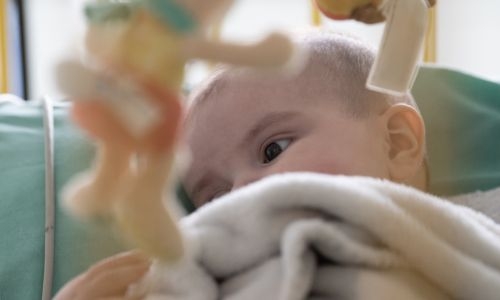New rights for UK donor babies as they turn 18
AFP | London
The Daily Tribune – www.newsofbahrain.com
Around 30 young adults conceived via sperm or egg donation in the UK will soon be able to discover the identity of their biological parent.
The new rights come as rising numbers of children are being conceived using the technology, posing a range of challenges for the children, their families and donors.
The UK law removed the anonymity of egg and sperm donors in 2005 and gave children the right to receive basic information about them when they reached 18.
With the first children covered by the legislation turning 18 this month, they will finally be able to request details such as the donor’s full name, date of birth and last known address.
Advances in fertility treatment methods and changing social attitudes have seen an increasing number of donor-conceived children being born -- not just to people facing fertility challenges but also samesex couples and women in their late forties and even fifties.
Initially the numbers of children who will have the right to know will be small, with just 30 people becoming eligible between now and December this year.
Data from the UK’s Human Fertilisation a n d Embryology Authority (HFEA) shows that will rise to more than 700 people by the end of 2024, increasing to 11,400 by 2030.
According to the latest available figures from the regulator of fertility treatment and research using human embryos, 4,100 UK births -- around one in 170 -- were the result of donor conception in 2019.
Few months off The cut-off point for the legislation has left some donor-conceived people disappointed that the identity of their donors will remain a mystery.
“I’m happy for the people who want to find out but I’m also a little annoyed that I was a couple of months off, so I won’t have the chance,” 19-year-old student Jamie Ruddock, from Brighton on England’s south coast, told AFP.
Ruddock said he had known for as long as he could remember that he had been donor-conceived and while he was not looking for another father figure he was still curious.
His older brother along with their father had begun looking for the donor via a DNA ancestry testing service but had not had any success.
“My brother definitely has a bigger sense of curiosity than I do but . . . if m y brother finds h i m I would like to have a conversation with him,” he said.
Nina Barnsley, director of the UK’s Donor Conception Network, said many of those eligible to ask for the information might not even be aware of how they were conceived.
When new techniques such as artificial insemination and in vitro fertilisation (IVF) were first introduced some four decades ago, infertility was something of a taboo subject and parents often did not tell children how they were conceived.
But for many years now, psychologists have advised families to be open with the information as early as possible.
Others might not have realised the significance of the legislation or have other priorities.
Related Posts

